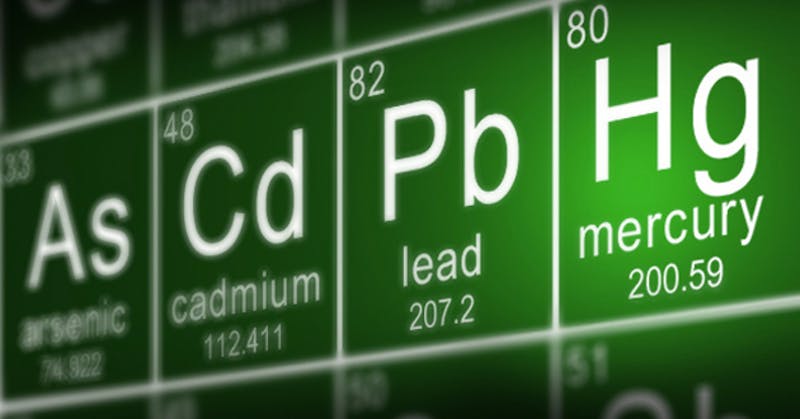USP Elemental Impurities in Food Ingredients
The United States Pharmacopeia (USP) guideline on elemental impurities sets stringent standards for the detection and control of heavy metals, toxic elements, and other harmful contaminants in pharmaceuticals. However, this chapter is not limited to just pharmaceuticals; it also applies to food ingredients due to their potential impact on public health.
The importance of ensuring that food ingredients are free from hazardous levels of elemental impurities cannot be overstated. These contaminants can include lead (Pb), cadmium (Cd), mercury (Hg), arsenic (As), and others, all of which have been linked to serious health issues such as kidney damage, neurological disorders, developmental defects in children, and cancer.
Our laboratory adheres strictly to the USP methodology for elemental impurities testing. This involves a series of steps designed to ensure accurate and reliable results:
Sample preparation: Food ingredients are subjected to rigorous sample preparation techniques, including digestion using appropriate acids or other methods as per USP guidelines.
Instrumentation: We use state-of-the-art inductively coupled plasma mass spectrometry (ICP-MS) and inductively coupled plasma optical emission spectroscopy (ICP-OES) to detect elemental impurities. These instruments provide high sensitivity, selectivity, and precision.
Method validation: Our laboratory validates its methods according to USP criteria before conducting any testing to ensure consistency and accuracy of results.
Data analysis: Raw data is analyzed using statistical tools provided in the USP chapter, ensuring that the limits set for elemental impurities are strictly adhered to.
The ultimate goal of this service is not only compliance with regulatory requirements but also to provide clients with confidence that their food ingredients meet or exceed safety standards. This approach helps ensure product quality and consumer trust.
By partnering with our laboratory, you gain access to a team of experts who are dedicated to maintaining the highest levels of accuracy and reliability in your elemental impurity testing. Our services go beyond mere compliance; they contribute significantly to enhancing the overall safety profile of your products.
Customer Impact and Satisfaction
Our commitment to USP Elemental Impurities testing ensures that our clients experience tangible benefits in various aspects:
Enhanced product safety: By ensuring that your food ingredients meet the stringent standards set by USP , you protect consumers from potential health risks associated with elemental impurities.
Improved compliance: With our expertise and adherence to international standards, you can ensure full compliance with regulatory requirements, avoiding costly fines and legal repercussions.
Increased consumer trust: Demonstrating your commitment to product safety through rigorous testing enhances the reputation of your brand among consumers and stakeholders alike.
Reduced risk of recalls: By identifying potential issues early in the supply chain, you minimize the risk of product recalls and associated costs.
Competitive edge: In a crowded market, demonstrating superior product safety can give your brand a competitive advantage.
We strive to exceed expectations by providing timely, accurate results and proactive support throughout the testing process. Your satisfaction is our top priority, and we aim to build long-term relationships based on trust and reliability.
Competitive Advantage and Market Impact
In today's highly competitive food and feed industry, maintaining a strong reputation for product safety and quality is crucial. By offering USP Elemental Impurities testing services, we help our clients achieve this goal:
Early identification of issues: Our comprehensive testing allows you to identify potential problems early in the supply chain, enabling you to take corrective actions before they become critical.
Enhanced brand reputation: Demonstrating your commitment to product safety through rigorous testing can significantly enhance your brand's reputation and consumer trust.
Increased market share: By ensuring that your products meet or exceed regulatory standards, you position yourself favorably against competitors who may not adhere to the same stringent guidelines.
Potential cost savings: Early detection of issues can prevent costly product recalls and associated legal fees. Additionally, compliance with USP can reduce the risk of regulatory penalties.
Our services are designed to provide you with a competitive edge in the market by ensuring that your products meet or exceed safety standards. This commitment to quality and reliability helps build long-term relationships with customers and stakeholders, contributing to sustained growth and success.
Use Cases and Application Examples
| Use Case | Description | Instrumentation Used | Acceptance Criteria |
|---|---|---|---|
| Peanut Flour Testing | Detection of lead, cadmium, arsenic, and other heavy metals in peanut flour. | ICP-MS and ICP-OES | Lead ≤ 10 ppm; Cadmium ≤ 3 ppm; Arsenic ≤ 2 ppm |
| Corn Syrup Testing | Assessment of elemental impurities in corn syrup to ensure compliance with USP . | ICP-MS and ICP-OES | Lead ≤ 15 ppm; Cadmium ≤ 2.5 ppm; Arsenic ≤ 3 ppm |
| Soybean Oil Testing | Detection of elemental impurities in soybean oil to ensure it meets USP requirements. | ICP-MS and ICP-OES | Lead ≤ 15 ppm; Cadmium ≤ 2.5 ppm; Arsenic ≤ 3 ppm |
| Citric Acid Testing | Testing for elemental impurities in citric acid to ensure it meets USP standards. | ICP-MS and ICP-OES | Lead ≤ 10 ppm; Cadmium ≤ 3 ppm; Arsenic ≤ 2 ppm |
| Gelatin Testing | Detection of elemental impurities in gelatin to ensure it meets USP standards. | ICP-MS and ICP-OES | Lead ≤ 15 ppm; Cadmium ≤ 2.5 ppm; Arsenic ≤ 3 ppm |
| Carrot Powder Testing | Assessment of elemental impurities in carrot powder to ensure compliance with USP . | ICP-MS and ICP-OES | Lead ≤ 15 ppm; Cadmium ≤ 2.5 ppm; Arsenic ≤ 3 ppm |
| Lemon Juice Testing | Detection of elemental impurities in lemon juice to ensure it meets USP requirements. | ICP-MS and ICP-OES | Lead ≤ 10 ppm; Cadmium ≤ 3 ppm; Arsenic ≤ 2 ppm |
The above examples illustrate how our USP Elemental Impurities testing services can be applied to various food ingredients. Each use case highlights the importance of ensuring that these ingredients meet strict safety standards, thereby protecting consumers and maintaining brand reputation.





